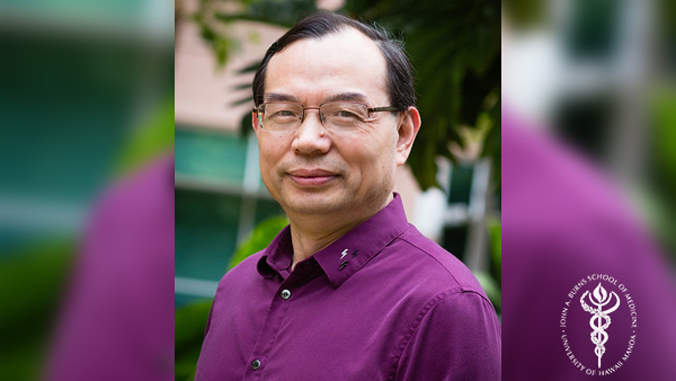
A University of Hawaiʻi at Mānoa scientist has been awarded a $2.8 million grant to advance his promising work in advanced technology to drastically improve the early detection of breast cancer.
Youping Deng of the John A. Burns School of Medicine (JABSOM) said his preliminary studies have identified a panel of fat-soluble molecules in the blood (lipids) that were able to distinguish early stage cancer from benign lesions with over 90 percent accuracy.
“Mammography is the current gold standard for breast cancer screening, however, most women with abnormal mammograms are eventually found not to have breast cancer,” said Deng, director of JABSOM Bioinformatics Core. “Most abnormal mammograms are false positives that require expensive breast imaging and biopsies, which can cause psychological distress.”
With the new investment by the National Institutes of Health, Deng’s aim is to identify signatures of circulating lipids and microRNA (small cellular RNA fragments that affect how genes work). These signatures can then be used reliably as a companion diagnostic tool to screening mammography, which would reduce the number of unnecessary follow-up investigations, especially invasive biopsy.
Deng and his team employ artificial intelligence and computational equations in their research. The hope is that development of a new diagnostic tool can be applied to other forms of cancer detection, including lung cancer, thereby potentially saving many lives through earlier and more accurate diagnosis.
In addition to his role in the JABSOM Department of Quantitative Health Sciences, Deng is co-director of the Genomics and Bioinformatics Shared Resource at the UH Cancer Center.
—By Tina Shelton

